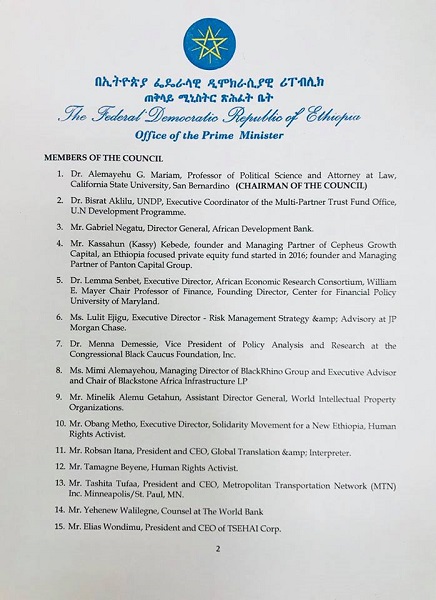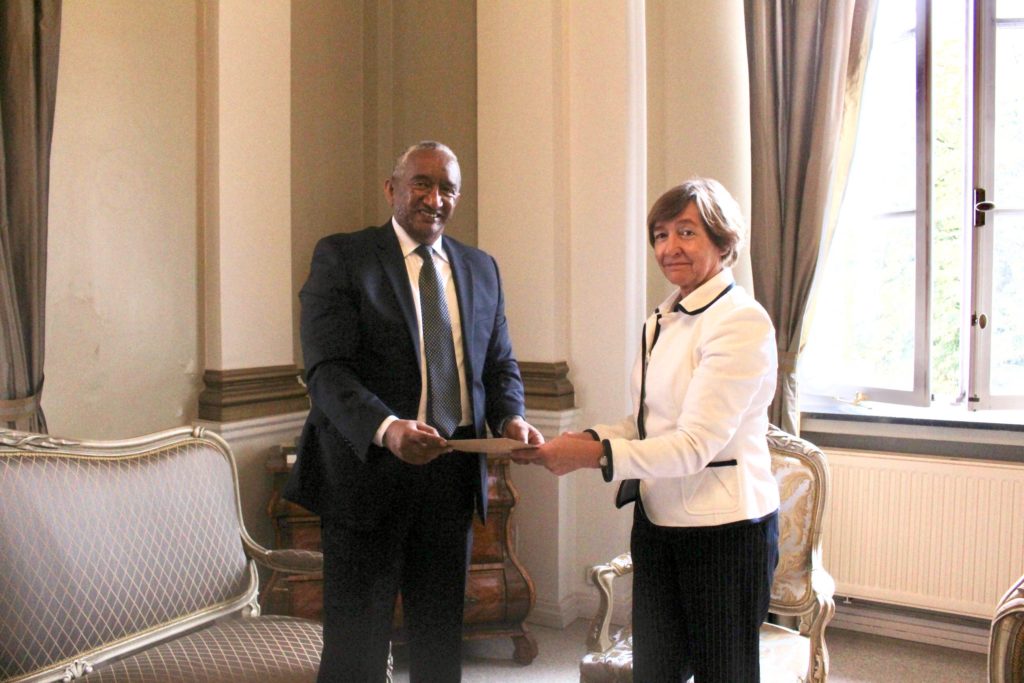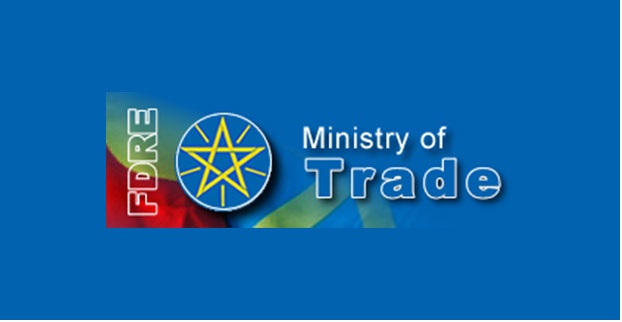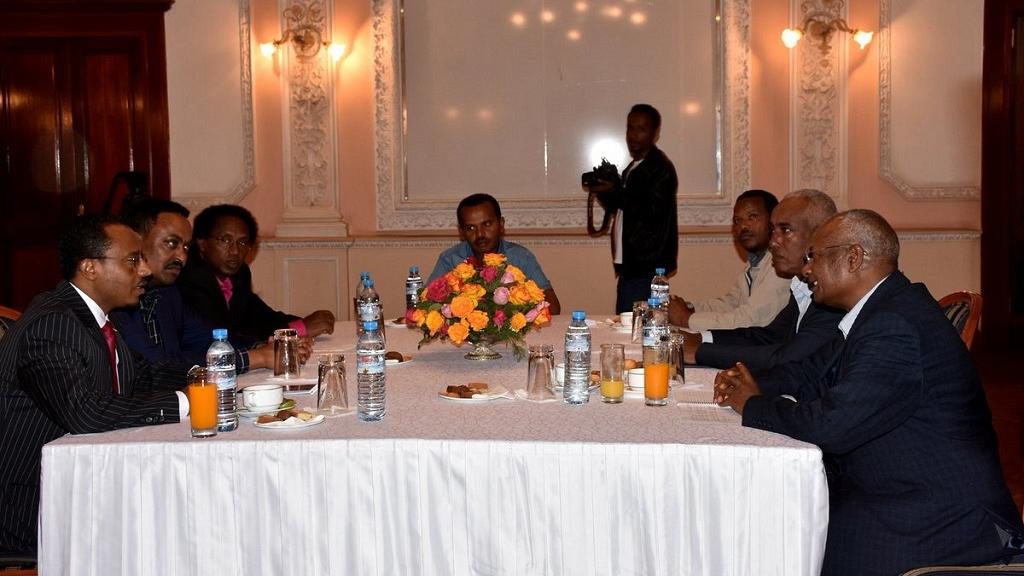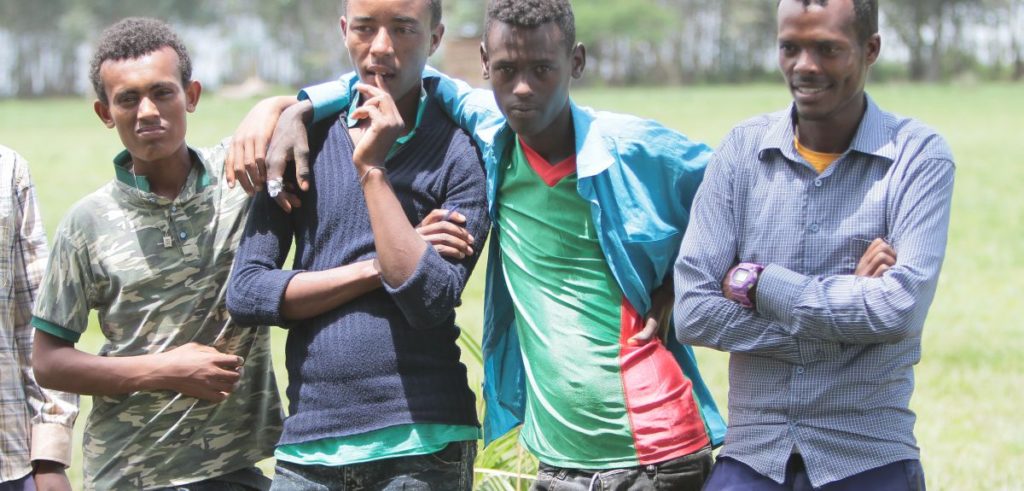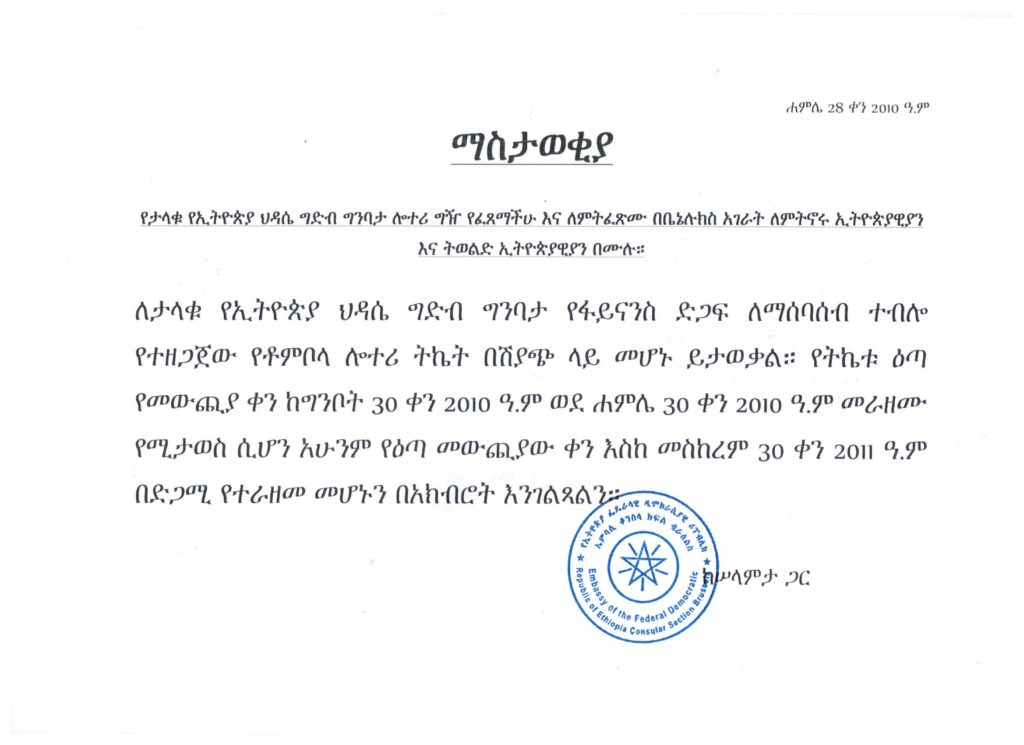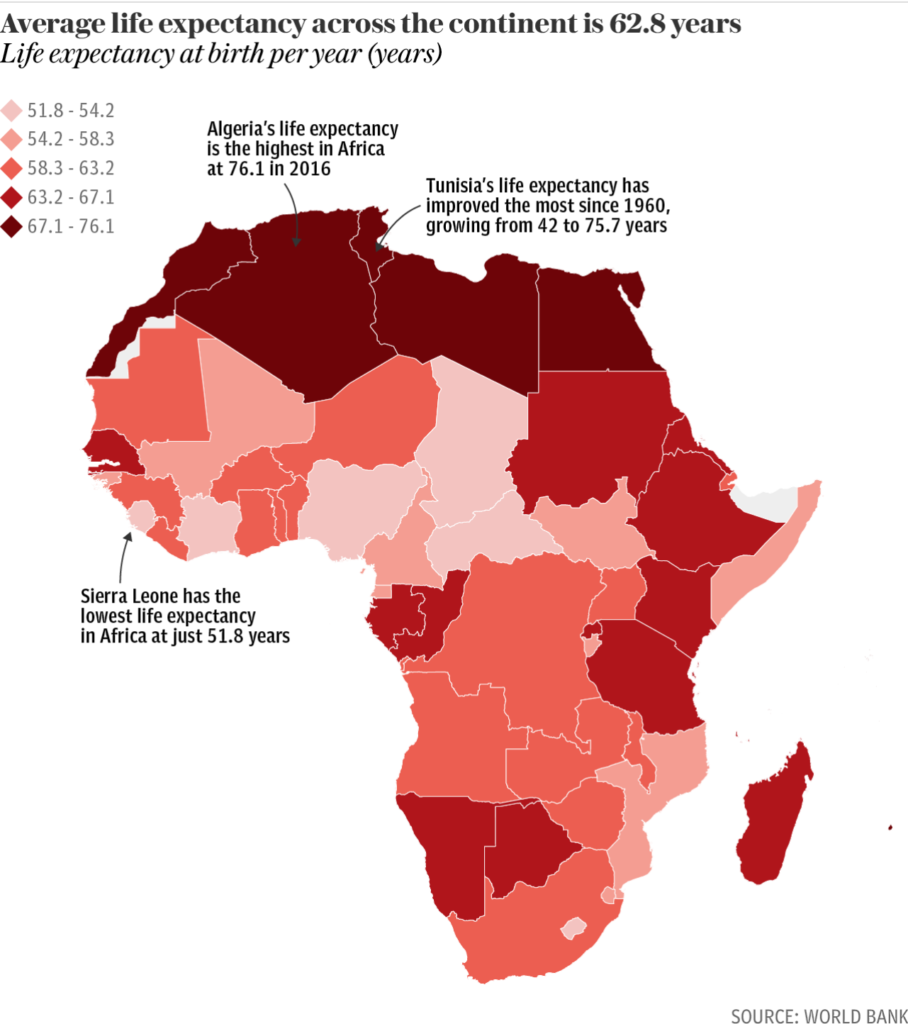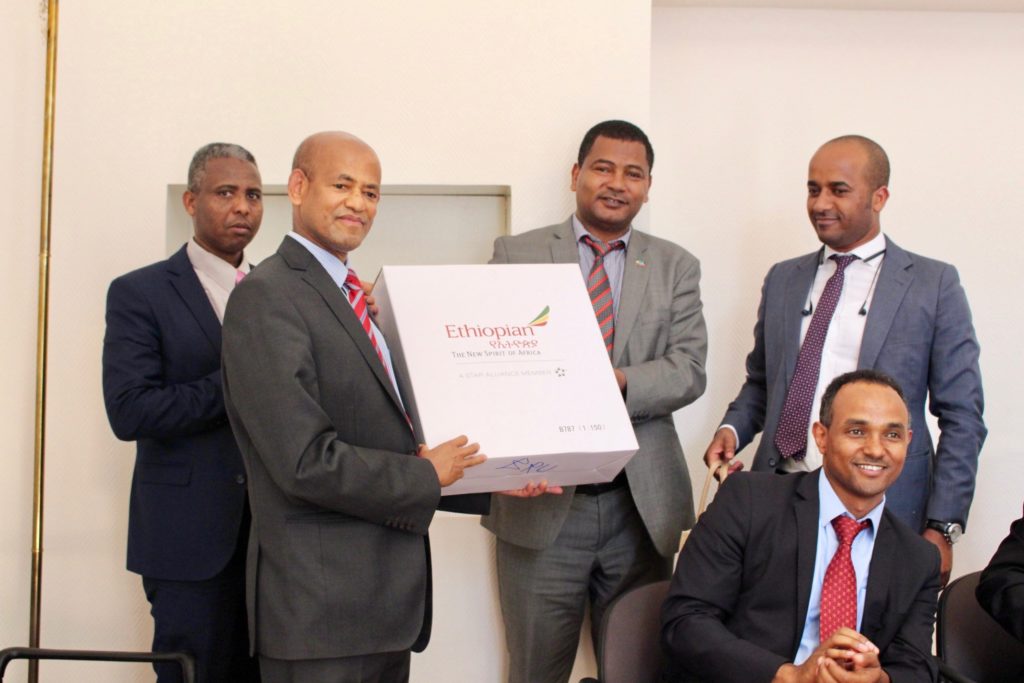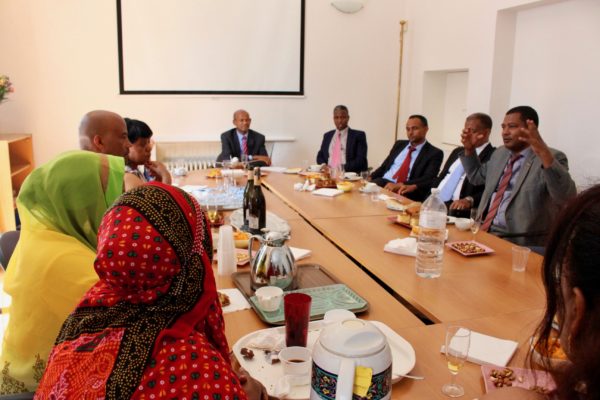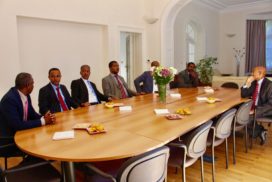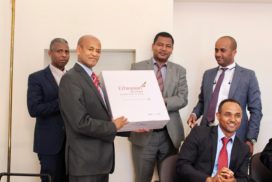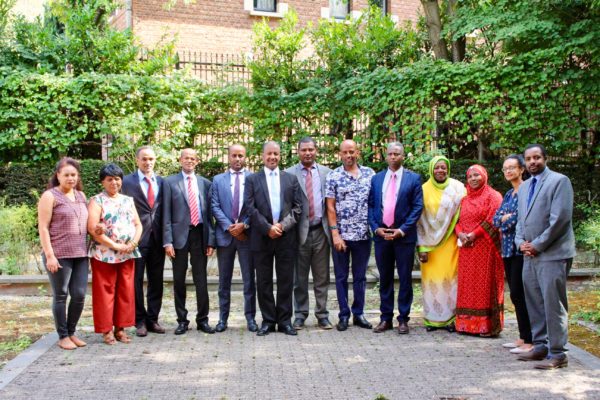The office of the prime minister of Ethiopia announced today the formation of Ethiopian Diaspora Trust Fund Advisory Council.

The Ethiopian Diaspora Trust Fund is among the initiatives of the government to directly involve Ethiopians in the Diaspora in the development of the country.
The government of Ethiopia is prepared to work with and engage all Ethiopian Diaspora communities worldwide in the socio-economic and political development of the country.
In his speech to the parliament, Prime Minister Abiy called on the Diaspora to contribute one dollar a day to fund social and developmental projects. In Response to his call, a diverse group of well-known Ethiopian scholars, business executives and other professionals have volunteered to mobilise the Diaspora.
The Council is expected to come up with a plan, which includes mechanisms to ensure accountability and transparency, project section criteria for funding and identification of practical means to attract broad support among the Diaspora.
The Council is also expected to seek input from the Diaspora communities to ensure that their voices are heard in the establishment and administration of the fund.
Diverse in all its forms, the volunteer-based council draws its fifteen members from academicians, business leaders, and human rights activists, among others. California State University Professor Alemayehu Gebremariam, Tamagne Beyene, a former comedian- currently an activist, and Obang Metho, Executive Director of Solidarity Movement for New Ethiopia are among the names included in the advisory council. (Check out the full list from the attached picture below)
The statement issued by the office of the prime minister stated that Abiy Ahmed’s challenge to Ethiopian Diaspora “has been accepted enthusiastically throughout the Ethiopian Diaspora.”
Apart from funding development efforts, the prime minister goal in initiating the program is to engage Ethiopians in the Diaspora in the socio-economic and political development of Ethiopia, according to the statement.
